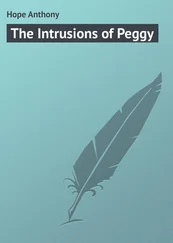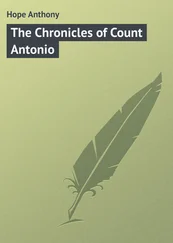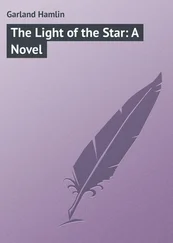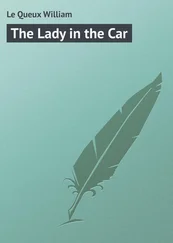Anthony Hope - The God in the Car - A Novel
Здесь есть возможность читать онлайн «Anthony Hope - The God in the Car - A Novel» — ознакомительный отрывок электронной книги совершенно бесплатно, а после прочтения отрывка купить полную версию. В некоторых случаях можно слушать аудио, скачать через торрент в формате fb2 и присутствует краткое содержание. Жанр: foreign_prose, на английском языке. Описание произведения, (предисловие) а так же отзывы посетителей доступны на портале библиотеки ЛибКат.
- Название:The God in the Car: A Novel
- Автор:
- Жанр:
- Год:неизвестен
- ISBN:нет данных
- Рейтинг книги:3 / 5. Голосов: 1
-
Избранное:Добавить в избранное
- Отзывы:
-
Ваша оценка:
- 60
- 1
- 2
- 3
- 4
- 5
The God in the Car: A Novel: краткое содержание, описание и аннотация
Предлагаем к чтению аннотацию, описание, краткое содержание или предисловие (зависит от того, что написал сам автор книги «The God in the Car: A Novel»). Если вы не нашли необходимую информацию о книге — напишите в комментариях, мы постараемся отыскать её.
The God in the Car: A Novel — читать онлайн ознакомительный отрывок
Ниже представлен текст книги, разбитый по страницам. Система сохранения места последней прочитанной страницы, позволяет с удобством читать онлайн бесплатно книгу «The God in the Car: A Novel», без необходимости каждый раз заново искать на чём Вы остановились. Поставьте закладку, и сможете в любой момент перейти на страницу, на которой закончили чтение.
Интервал:
Закладка:
"Hullo!" he exclaimed. "What are you pitching into me for, Mrs. Dennison?"
His words were ordinary enough, but at last he was looking at her, and the mails of Omofaga were for a moment forgotten.
"I wish I'd never made them send the wretched telegram," she flashed out passionately. "Much thanks I get!"
"You shall have a statue in the chief street of the chief town of – "
"How dare you! I'm not a girl to be chaffed."
The tears were standing in her eyes, as she threw herself back in a chair. Willie Ruston got up and stood by her.
"You'll be proud of that telegram some day," he said, rather as though he felt bound to pay her a compliment.
"Oh, you think that now?" she said, unconvinced of his sincerity.
"Yes. Though was it very difficult?" he asked with a sudden change of tone most depreciatory of her exploit.
She glanced at him and smiled joyfully. She liked the depreciation better than the compliment.
"Not a bit," she whispered, "for me."
He laughed slightly, and shut his lips close again. He began to understand Mrs. Dennison better.
"Still, though it was easy for you, it was precious valuable to me," he observed.
"And how you hate being obliged to me, don't you?"
He perceived that she understood him a little, but he smiled again as he asked,
"Oh, but what made you do it, you know?"
"You mean you did? Mr. Ruston, I should like to see you at work in Omofaga."
"Oh, a very humdrum business," said he, with a shrug.
"You'll have soldiers?"
"We shall call 'em police," he corrected, smiling.
"Yes; but they keep everybody down, and – and do as you order?"
"If not, I shall ask 'em why."
"And the natives?"
"Civilise 'em."
"You – you'll be governor?"
"Oh, dear, no. Local administrator."
She laughed in his face; and a grim smile from him seemed to justify her.
"I'm glad I sent the telegram," she half-whispered, lying back in the chair and looking up at him. "I shall have had something to do with all that, shan't I? Do you want any more money?"
"Look here," said Willie Ruston, "Omofaga's mine. I'll find you another place, if you like, when I've put this job through."
A luxury of pleasure rippled through her laugh. She darted out her hand and caught his.
"No. I like Omofaga too!" she said, and as she said it, the door suddenly opened, and in walked Tom Loring – that is to say – in Tom Loring was about to walk; but when he saw what he did see, he stood still for a moment, and then, without a single word, either of greeting or apology, he turned his back, walked out again, and shut the door behind him. His entrance and exit were so quick and sudden, that Mrs. Dennison had hardly dropped Willie Ruston's hand before he was gone; she had certainly not dropped it before he came.
Willie Ruston sat down squarely in a chair. Mrs. Dennison's hot mood had been suddenly cooled. She would not ask him to go, but she glanced at the hat that had been through Omofaga. He detected her.
"I shall stay ten minutes," he observed.
She understood and nodded assent. Very little was said during the ten minutes. Mrs. Dennison seemed tired; her eyes dropped towards the ground, and she reclined in her chair. Ruston was frowning and thrumming at intervals on the table. But presently his brow cleared and he smiled. Mrs. Dennison saw him from under her drooping lids.
"Well?" she asked in a petulant tone.
"I believe you were going to fight me for Omofaga."
"I don't know what I was doing."
"Is that fellow a fool?"
"He's a much better man than you'll ever be, Mr. Ruston. Really you might go now."
"All right, I will. I'm going down to the city to see your husband and Carlin."
"I'm afraid I've wasted your time."
She spoke with a bitterness which seemed impossible to miss. But he appeared to miss it.
"Oh, not a bit, really," he assured her anxiously. "Good-bye," he added, holding out his hand.
"Good-bye. I've shaken hands once."
He waited a moment to see if she would speak again, but she said nothing. So he left her.
As he called a hansom, Mrs. Cormack was leaning over her balcony. She took a little jewelled watch out of her pocket and looked at it.
"An hour and a quarter!" she cried. "And I know the poor man isn't at home!"
CHAPTER VII
AN ATTEMPT TO STOP THE WHEELS
Miss Adela Ferrars lived in Queen's Gate, in company with her aunt, Mrs. Topham. Mrs. Topham's husband had been the younger son of a peer of ancient descent; and a practised observer might almost have detected the fact in her manner, for she took her station in this life as seriously as her position in the next, and, in virtue of it, assumed a responsibility for the morals of her inferiors which betrayed a considerable confidence in her own. But she was a good woman, and a widow of the pattern most opposite to that of Mrs. Cormack. She dwelt more truly in the grave of her husband than in Queen's Gate, and permitted herself no recreations except such as may privily creep into religious exercises and the ministrations of favourite clergymen; and it is pleasant to think that she was very happy. As may be supposed, however, Adela (who was a good woman in quite another way, and therefore less congenial with her aunt than any mere sinner could have been) and Mrs. Topham saw very little of one another, and would not have thought of living together unless each had been able to supply what the other wanted. Adela found money for the house, and Mrs. Topham lent the shelter of her name to her niece's unprotected condition. There were separate sitting-rooms for the two ladies, and, if rumour were true (which, after all, it usually is not), a separate staircase for the clergy.
Adela was in her drawing-room one afternoon when Lord Semingham was announced. He appeared to be very warm, and he carried a bundle of papers in his hand. Among the papers there was one of those little smooth white volumes which epitomise so much of the joy and sorrow of this transitory life. He gave himself a shake, as he sat down, and held up the book.
"The car has begun to move," he observed.
"Juggernaut's?"
"Yes; and I have been to see my bankers. I take a trip to the seaside instead of a moor this year, and have let my own pheasant shooting."
He paused and added,
"Dennison has not taken my shooting. They go to the seaside too – with the children."
He paused again and concluded,
"The Omofaga prospectus will be out to-morrow."
Adela laughed.
"Bessie is really quite annoyed," remarked Lord Semingham. "I have seldom seen her so perturbed – but I've sent Ruston to talk to her."
"And why did you do it?" asked Adela.
"I should like to tell you a little history," said he.
And he told her how Mrs. Dennison had sent a telegram to Frankfort. This history was long, for Lord Semingham told it dramatically, as though he enjoyed its quality. Yet Adela made no comment beyond asking,
"And wasn't she right?"
"Oh, for the Empire perhaps – for us, it means trips to the seaside."
He drew his chair a little nearer hers, and dropped his affectation of comic plaintiveness.
"A most disgusting thing has happened in Curzon Street," he said. "Have you heard?"
"No; I've seen nothing of Maggie lately. You've all been buried in Omofaga."
"Hush! No words of ill-omen, please! Well, it's annoyed me immensely I can't think what the foolish fellow means. Tom Loring's going."
"Tom – Loring – going?" she exclaimed with a punctuated pause between every word. "What in the world for?"
Конец ознакомительного фрагмента.
Текст предоставлен ООО «ЛитРес».
Прочитайте эту книгу целиком, купив полную легальную версию на ЛитРес.
Читать дальшеИнтервал:
Закладка:
Похожие книги на «The God in the Car: A Novel»
Представляем Вашему вниманию похожие книги на «The God in the Car: A Novel» списком для выбора. Мы отобрали схожую по названию и смыслу литературу в надежде предоставить читателям больше вариантов отыскать новые, интересные, ещё непрочитанные произведения.
Обсуждение, отзывы о книге «The God in the Car: A Novel» и просто собственные мнения читателей. Оставьте ваши комментарии, напишите, что Вы думаете о произведении, его смысле или главных героях. Укажите что конкретно понравилось, а что нет, и почему Вы так считаете.












